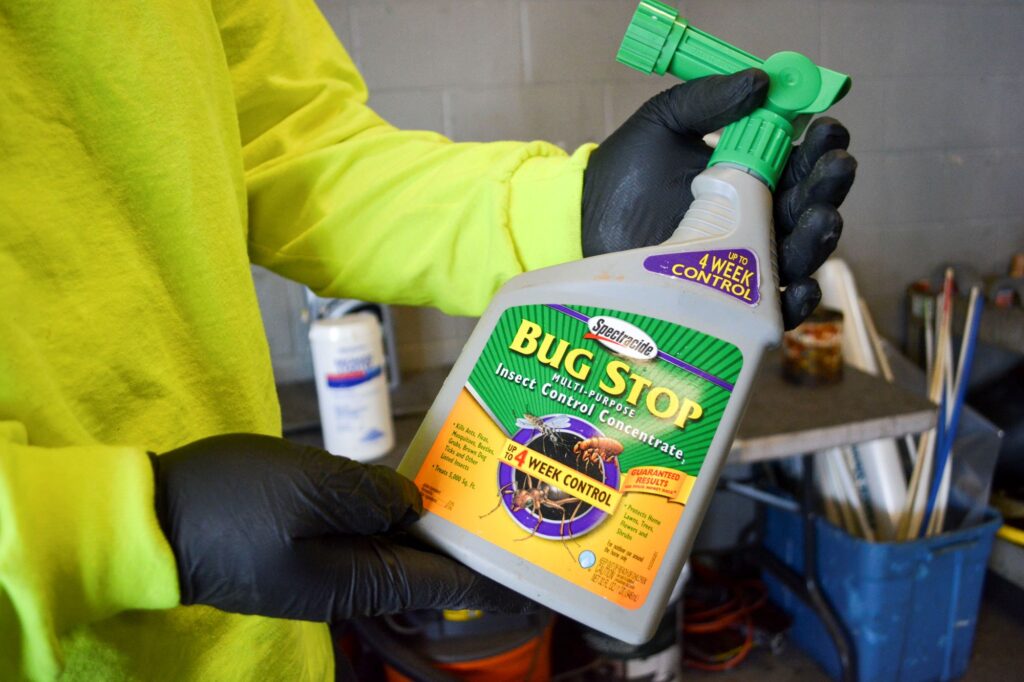Keeping your landscape nice and healthy is hard work, and some of that work includes the use of heavy-duty chemicals to keep your lawn and garden pest-free. Pesticides and insecticides pose unique risks because they are designed to kill. And while these chemicals are targeted to insects and other pests, these same toxic compositions can pose a major health risk to your family—especially small children and pets—as well as the environment. Learn more about storing and disposing of pesticides and insecticides to reduce the risk to your home.
Why Pesticides and Insecticides Are Hazardous Waste
The health effects of pesticides and insecticides depend on the chemicals within. By reading the labels of these containers, you can learn more about the risks posed by each. For example, some contain organophosphates or carbamates that affect the nervous system. Others will affect the hormonal or endocrine systems in the human body. They can also be carcinogenic or cause burns or irritation to the skin or eyes. Find information for your specific product and state by using the National Pesticide Information Network.
Insecticide & Pesticide Disposal, Storage, and Handling
The best way to keep your home safe from these gardening chemicals is proper safety in storing and handling them. If you’ve got old, empty, or restricted pesticides or insecticides, it’s also time to think about disposal.
- Disposal: Depending on the chemicals involved, you may be able to wash out the container and throw it in the trash. Water used in washing should not be dumped down the drain.
- Storage: Store in original containers out of reach of children and pets. Avoid storing in damp places, especially with paper or metal containers.
- Handling: You should always wear gloves when handling gardening chemicals. Additionally, using in larger-than-needed doses can cause excess chemical run-off.
Learn more about disposal in our blog, How to Safely Dispose of Gardening Chemicals.
Other Home & Garden Hazardous Waste
Of course, pesticides and insecticides aren’t the only types of hazardous gardening products you might have at home. Herbicides are another hazardous chemical with warning labels similar to the other two products, posing hazards not only to you but the environment in cases of run-off or pouring down the drain. Chemical and biosolid fertilizers are another: while they pose little risk to humans, run-off and illegal dumping can have significant impacts on the environment, including toxic algae blooms.
NEDT is here to help with the disposal of all your hazardous gardening chemicals, alongside other household hazardous products like eWaste and paint. Learn more about our Household Hazardous Products Collection Centers and what we accept. We have multiple options for disposal, including at our locations and our pick-up service. Want to learn more or have any questions about the products in your home? Contact us today!




Leave a Reply